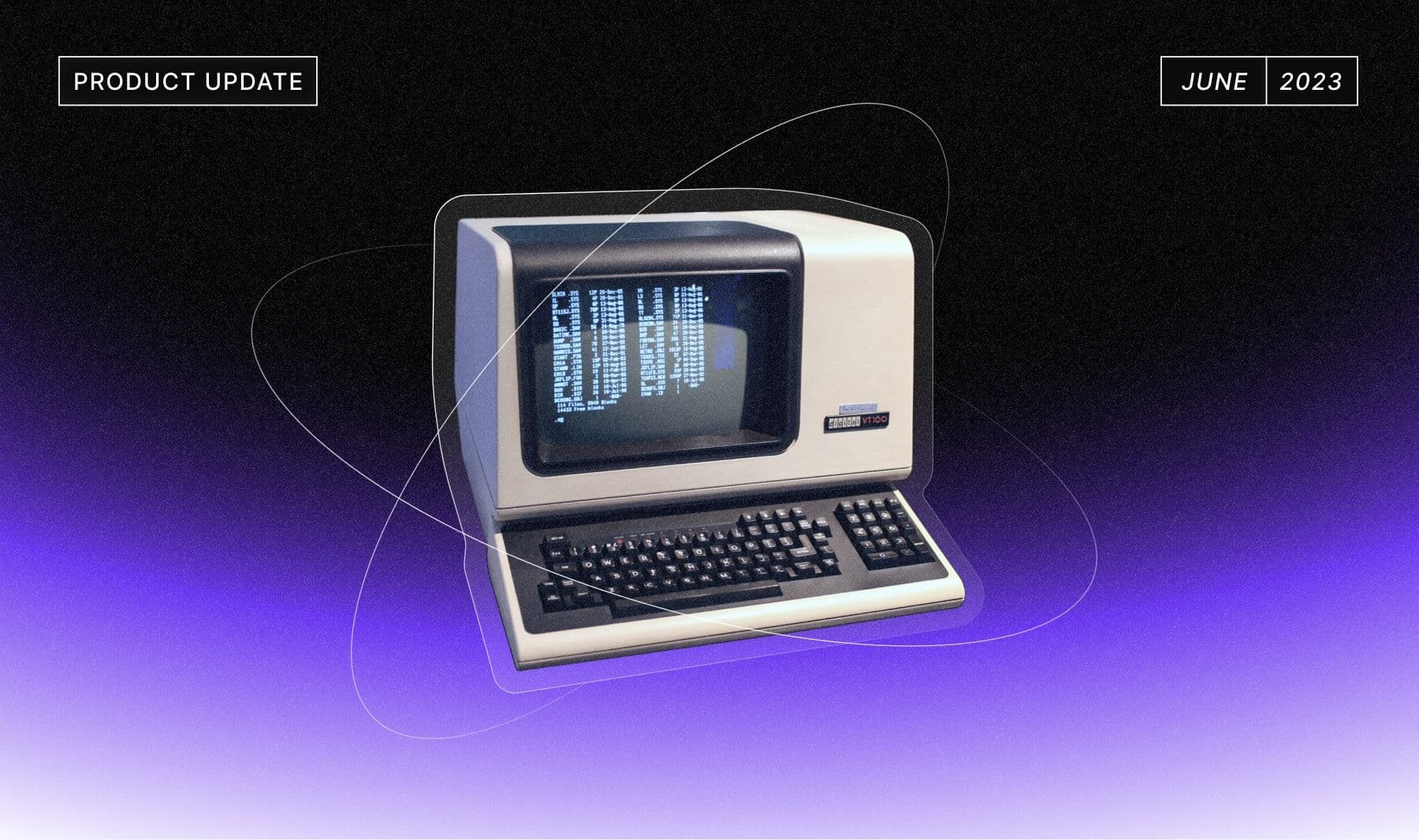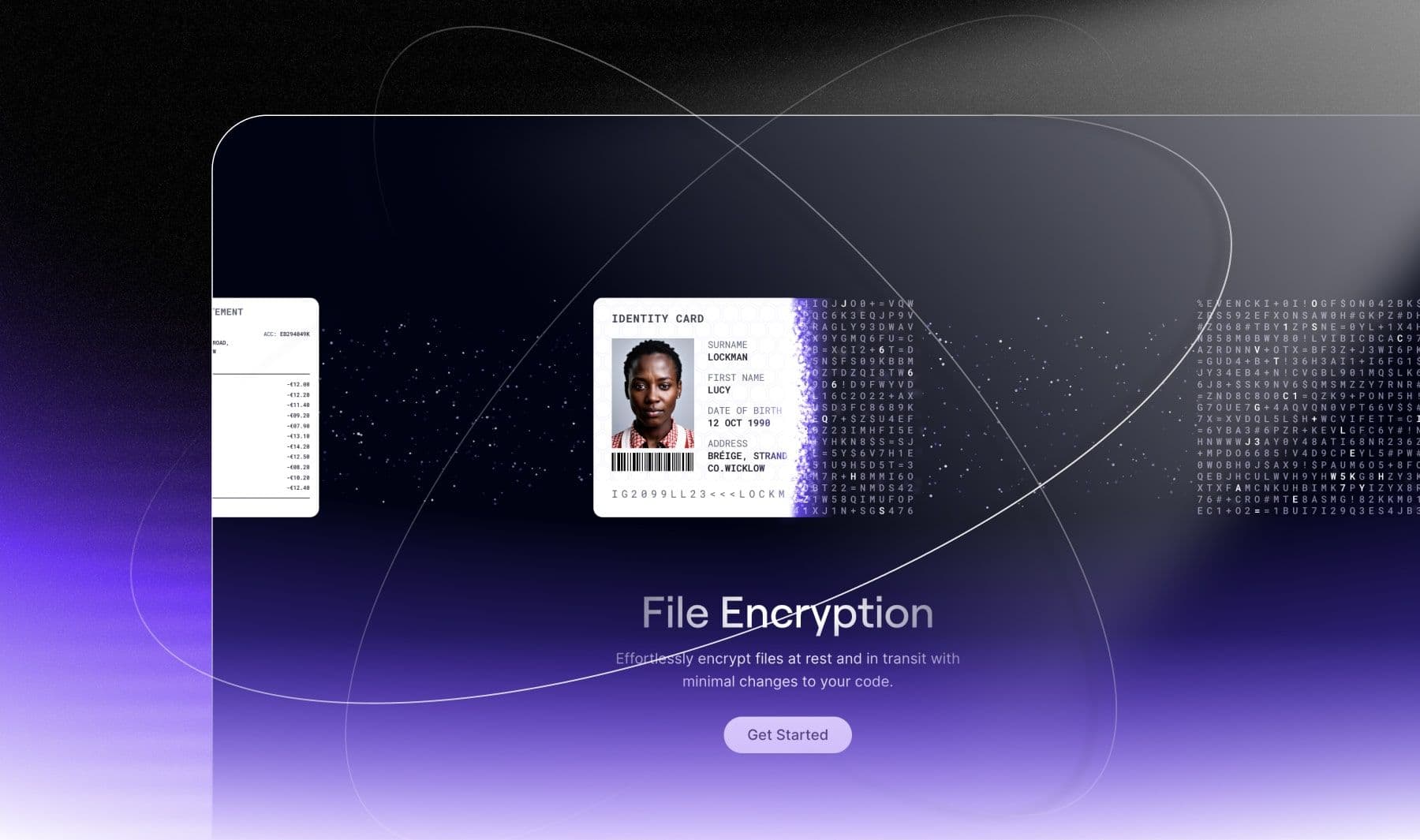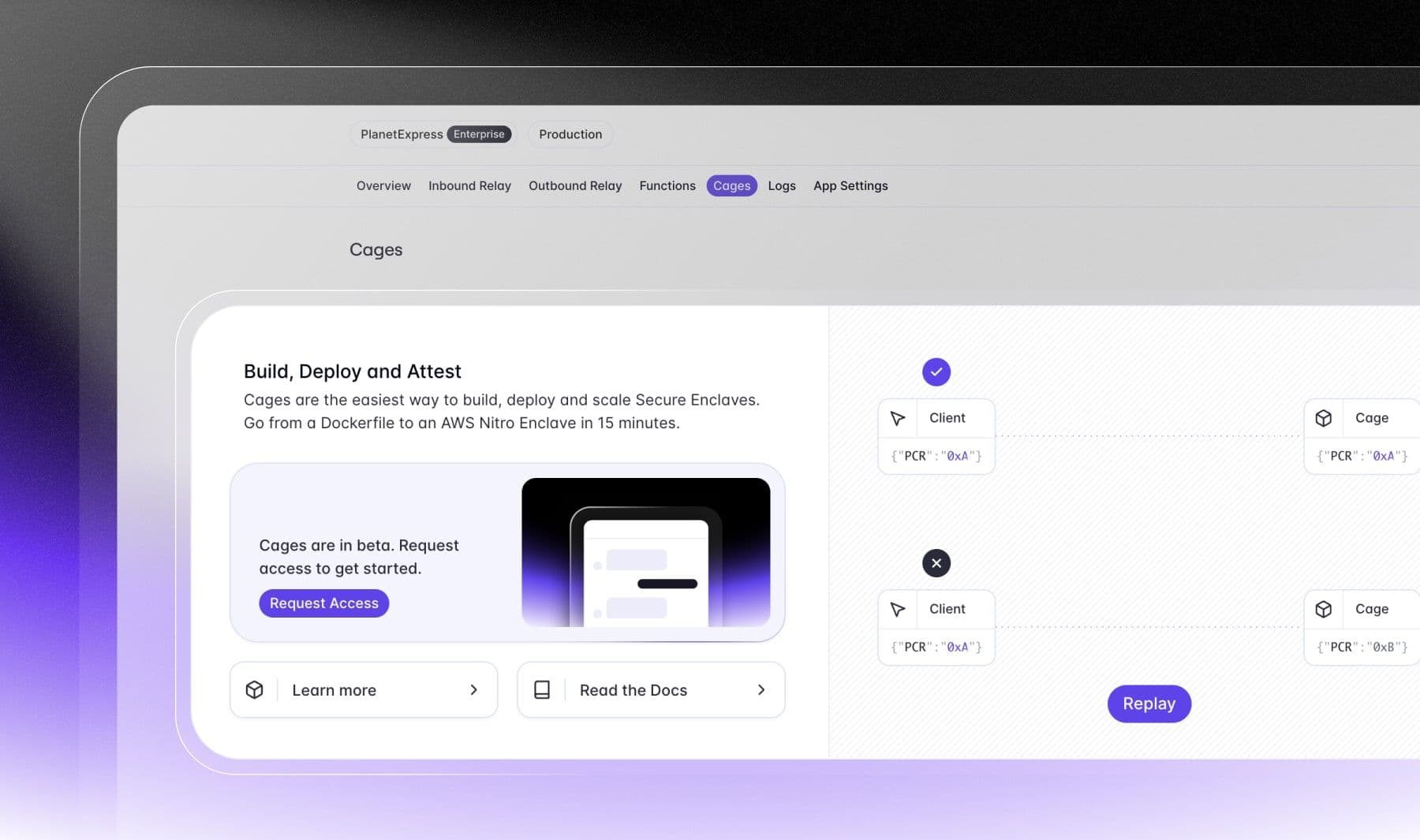Beyond payment tokenization: Why developers are choosing Evervault's encryption-first approach
How Evervault’s dual-custody encryption model eliminates the fundamental limitations of traditional tokenization for PCI compliance


Last month we focused on enhancements to our existing product & features — improving our reliability and user experience… that said, we’re currently cooking up some bigger releases, so keep an eye out!
With usage-based pricing models, it’s very important that the end user clearly understands how they’re being billed.
With this idea in mind, we spent some time reworking our billing processor and billing UI in the Evervault dashboard. The rework includes a detailed breakdown of usage and billing, which allows users to see exactly what they are being billed for and why.

Earlier this year, we launched file encryption, extending the data types our users can secure and adding to the growing list of use cases Evervault supports. To further explain the concept and to market the use case, we spent some design energy crafting a page for the Evervault website.
We’re already starting to see some incredible applications of the feature, including biometric image encryption for virtual fitting rooms, resume encryption for a jobs board, and drivers licence and passport encryption for a booking system.

For complex products, it’s a good idea to pack lots helpful onboarding material into empty states.
In a recent effort to shorten the “time-to-encrypt” for new Evervault users, we entirely reworked empty states across the Evervault dashboard. Now, each product empty state includes a short description, an animated architecture diagram, and some resources to help you get started.
Node.js 16 will reach its End of Life on September 11th. In line with this, Evervault are deprecating Node.js 16 support for Functions. This means that while your Functions will continue to run, you will not be able to deploy again after that date without updating the Node.js version of your Function.
In order to continue deploying your Functions smoothly*, you’ll need to follow these simple steps to update your Function Node version before September 11th.
function.toml and set your language to be node@18 or node@20*Affected users will receive a separate notification to ensure they make this change by the deadline.

We released a bunch of great content this month — here are some of our favorites: